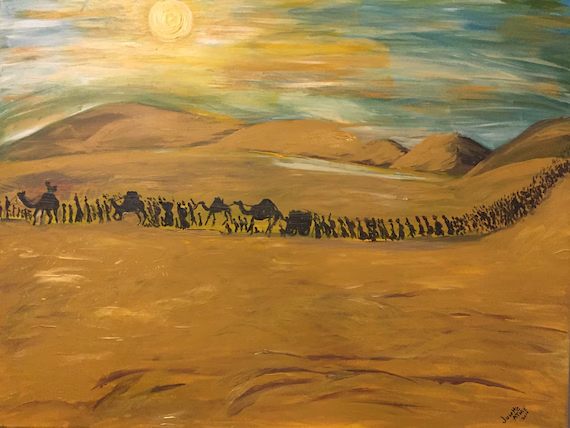Daniel and the Lions
Daniel was growing old, but King Darius thought Daniel was so wise, that he appointed him to be one of the three rulers of Babylon.
They ruled the kingdom under the king. Daniel served the King loyally, but he still prayed to God. Three times every day, he knelt at his window, facing distant Jerusalem, to say his prayers.
The other two rulers of the kingdom were jealous of Daniel and plotted to get rid of him. But however hard they tried, they couldn't find anything they could accuse him of doing wrong.
They decided that the only way was through his devotion to God.
They went to King Darius and begged him to make a new law. 'O King, they said, make a law that for thirty days everyone must pray only to you.
If anyone prays to any other god, they shall be fed to the lions. The King agreed and made the law that could never be changed.
Daniel heard about the new law, but three times every day he knelt at his window to say his prayers to God. The two rulers watched him and, delighted that their plan had worked, they rushed to tell the King.
King Darius was angry and upset. He liked and trusted Daniel, but Daniel had broken the law, and must die. There was nothing the King could do to save him.
He ordered Daniel to be put into the lion pit. As Daniel walked down into it, a huge stone was pushed across the entrance to close it. King Darius said; 'May the God you trust in save you.
The King went back to his palace but, that evening, he was so upset he couldn't eat his supper. He sent his servants away, and couldn't sleep all night.
Very early in the morning, he hurried to the lion pit.
'Did your God save you? He shouted. 'I'm here, answered Daniel. 'My God kept the lions' mouths shut. He knows I've done nothing wrong.
The King was delighted that Daniel was alive and unharmed. He ordered him to be taken out of the pit and commanded the two rulers who had plotted against Daniel to be brought there instead.
They were pushed into the pit and were soon killed by the lions.
King Darius made a new law. 'Let everyone in the new kingdom fear and respect Daniel's God. Who saved him from the lions. He is the living God, and His kingdom will last forever.










Comments
Post a Comment